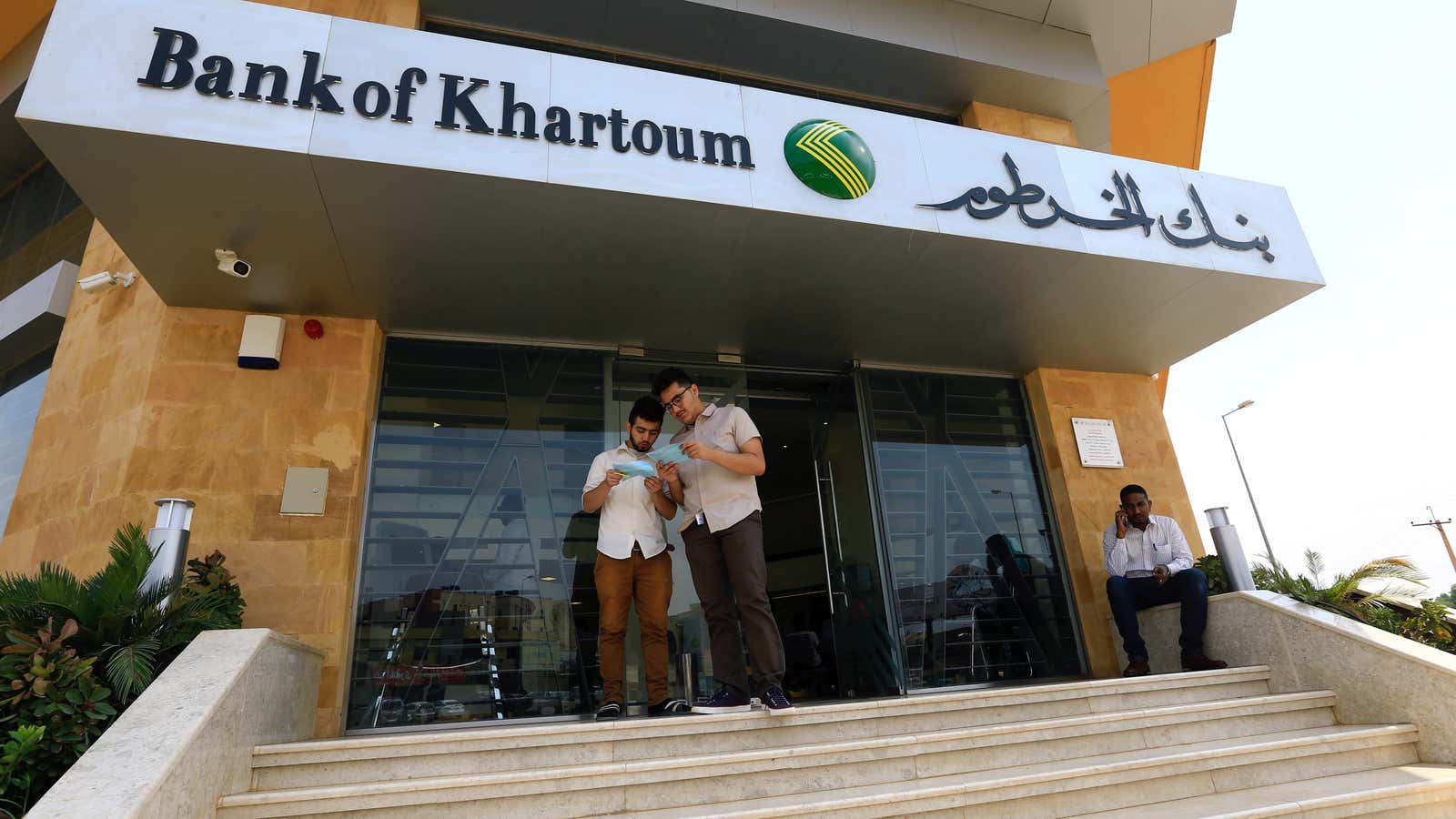In 2008, Hania Fadl, CEO and founder of Khartoum’s Breast Cancer Center, bought a mammography machine from General Electrics. Despite being brand new, the high-tech piece of kit then spent much time being kaput: replacing faulty parts always took months; flying in engineers to fix it required a special license. This is because Sudan was under a trade embargo imposed by the US since 1997, a retribution for the country’s role as a host of terrorist groups.
That 20-year blockade recently ended. In October, citing Khartoum’s improved counter-terrorism efforts, the Trump administration lifted economic sanctions, which also included a freeze on government assets and tight restrictions on financial institutions dealing with Sudan. Dr Fadl is now looking to buy a second mammography machine. She says the breast cancer center, a privately funded non-profit, will shortly try to raise money from US, European and Middle Eastern donors.
Sudan’s travails show how impactful US sanctions can be – even after being lifted. America’s influence might be waning, but its embargoes still have the power to block trade relationships, curb access to financing and make life very difficult for businesses. And while sanctions relief is good news to entrepreneurs, many find that reconnecting to the global economy after being shut out for years is an uphill battle.
Khartoum Breast Cancer Center is a member of the US-Sudan Business Council (USSBC), a group comprising some of Sudan’s largest private businesses that played an instrumental role in inspiring others—including the government—to lobby the US for sanctions relief. Bank of Khartoum, also part of the USSBC, managed to get its name off the sanctions list as early as 2011 (the government later mandated the same law firm, Squire Patton Boggs, to convince Washington it should end the broader embargo). KBCC got cleared in 2016, soon after Dr Fadl’s appeal to US lawmakers prompted a seven-strong Congress delegation—including Janice Schakowsky of Illinois and Marcia L. Fudge of Ohio—to visit the center.
The USSBC has since embarked on a new mission: it wants the US government to help it attract the foreign investment Sudan badly needs to modernize its economy. Two decades of isolation have made the country particularly reliant on oil, which it started exporting just as sanctions kicked off. For a while, that allowed Sudan to weather much of the blockade: GDP nearly quadrupled in the decade to 2007. But South Sudan, which seceded in 2011, took away around 75% of Sudan’s oil reserves. Exports plummeted overnight.
At about the same time, Sudan also found itself cut off from the global financial system. In the aftermath of the financial crisis, the US started imposing hefty fines on banks dealing with Sudan—even non-US ones. Weary of finding themselves in Washington’s crosshairs, foreign lenders stopped supplying the country with dollars. Companies turned to the black market; interest rates jumped. “Sudan became an economy run on cash. That created a fertile environment for corruption and money laundering,” says Ahmed Abdellatif, president of CTC Group, a Sudanese conglomerate.
Sanctions have now gone, but those problems remain. Foreign banks are still reluctant to open dollar correspondent accounts for their Sudanese peers, reckons Fadi Al Faqih, Bank of Khartoum’s boss, lest they get punished should the US reverse foreign policy. Sudan remains on Washington’s list of states sponsors of terrorism, which worries Western compliance officers. The lack of financing is holding up progress. “The key to attracting FDI or having Sudan’s cost of business come down is re-establishing US dollar clearing relationships,” says Al Faqih.
In response, the USSBC has launched a “big outreach effort” to Western law firms, encouraging them to produce explanatory notes targeted at multinationals and development financiers, says Ihab Osman, its chairman. The council is also sponsoring a conference in New York next month that will specifically cover the country’s banking issues. And it wants Washington to help it attract tech titans to Sudan. “The Apples and Googles of this world may be daunted by the amount of paperwork needed to come here. The State Department could sit down with the dotcom companies to explain, encourage, make our case,” Abdellatif says.
Within the US administration, the council’s main contacts are the technical arms responsible for supporting US trade and investment abroad. But more informal discussions are also taking place. “Many of the USSBC’s membership studied in the US and maintain excellent links in Washington,” a spokesman says. “Some relationships were changed as new staff and elected officials came in, but the USSBC continues to work with lawmakers in Washington.”
Not every country shied away from Sudan during the sanctions era. China, in particular, has sought to fill the void left by Western companies. It established its first oil venture in Sudan just before the US embargo came into force; it is now a salient force in the construction, power and agriculture sectors, among others. But those investments have failed to boost productivity, says Rolf Traeger, an economist with the UN’s Conference on Trade and Development, because they did not foster technology transfers and the adoption of modern management techniques. He points out that Sudan’s manufacturing sector has shrunk drastically since 1997.
The USSBC’s efforts are aiming at the right target. The example of Iran, where a lack of economic progress has recently fueled mass protests, suggests sanctions relief is not enough in itself for foreign investors to rush in. It doesn’t help that the sanctions imposed on Sudan were uniquely complex, as they were progressively reinforced to punish human rights violations and other offenses. Besides, Sudan remains saddled with high inflation and bulging debt. Getting a nice word from Washington may help. “For investors, there’s so much low-hanging fruit,” says Abdellatif. “But Sudan very much remains an exotic destination.”
